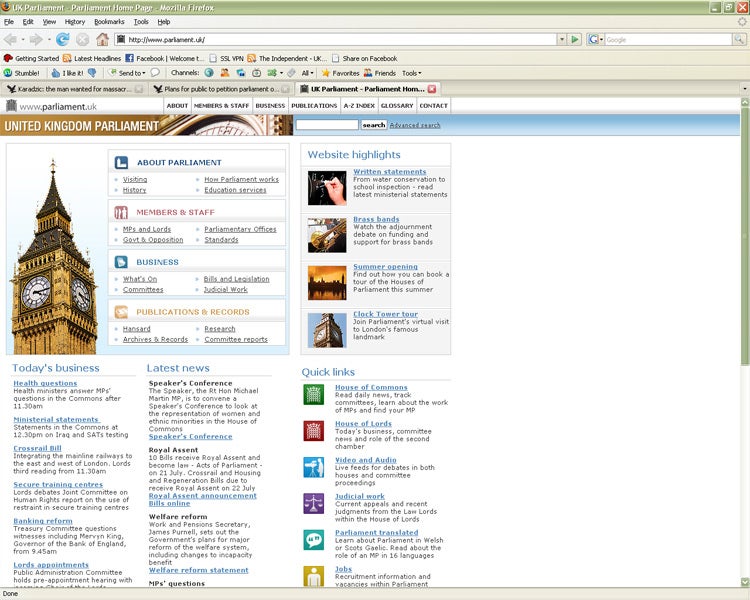Your support helps us to tell the story
From reproductive rights to climate change to Big Tech, The Independent is on the ground when the story is developing. Whether it's investigating the financials of Elon Musk's pro-Trump PAC or producing our latest documentary, 'The A Word', which shines a light on the American women fighting for reproductive rights, we know how important it is to parse out the facts from the messaging.
At such a critical moment in US history, we need reporters on the ground. Your donation allows us to keep sending journalists to speak to both sides of the story.
The Independent is trusted by Americans across the entire political spectrum. And unlike many other quality news outlets, we choose not to lock Americans out of our reporting and analysis with paywalls. We believe quality journalism should be available to everyone, paid for by those who can afford it.
Your support makes all the difference.Members of the public are set to be allowed to petition the House of Commons over the internet, it was announced today.
And the authors of the most significant petitions could be called to give evidence to MPs in person and see the issues they raise debated in the Commons' subsidiary chamber Westminster Hall.
MPs will debate the introduction of a new online service in the autumn, in line with the recommendations of a Commons Procedure Committee report which said that the House should reclaim its position as the first-choice place to send petitions.
More than 29,000 e-petitions on everything from road-pricing to new bank holidays have been posted on the 10 Downing Street website since it launched its own service in 2006, attracting over 5.8 million signatures - a volume not seen by Parliament for more than a century.
In its report in April, the Procedure Committee said the Commons should fight back with what it claimed would be the biggest and most ambitious e-petition system ever put in place.
Today, Leader of the House Harriet Harman gave the Government's backing to an e-petition service to be launched on the parliamentary website www.parliament.uk .
And she proposed that Commons select committees - cross-party panels of backbench MPs which scrutinise the work of different Government departments - should set aside a day each year to take evidence from the originators of the most significant petitions.
Although the petitions which win the most signatures would clearly be likely candidates for discussion in the Commons, select committee chairmen would have discretion to decide which petitioners they invite to give evidence, in order to focus on the most important issues and weed out the frivolous.
In a written statement to MPs, Ms Harman raised a question mark over the Procedure Committee's suggestion that the Government should pledge to respond to every petition received.
It may not be "possible or proportionate" to do so, given the large increase in numbers expected as a result of going online, she warned.
But she added: "The Government hopes that the House will endorse this way forward, allowing it to take a significant step forward in helping to promote better engagement with the public."

Join our commenting forum
Join thought-provoking conversations, follow other Independent readers and see their replies
Comments